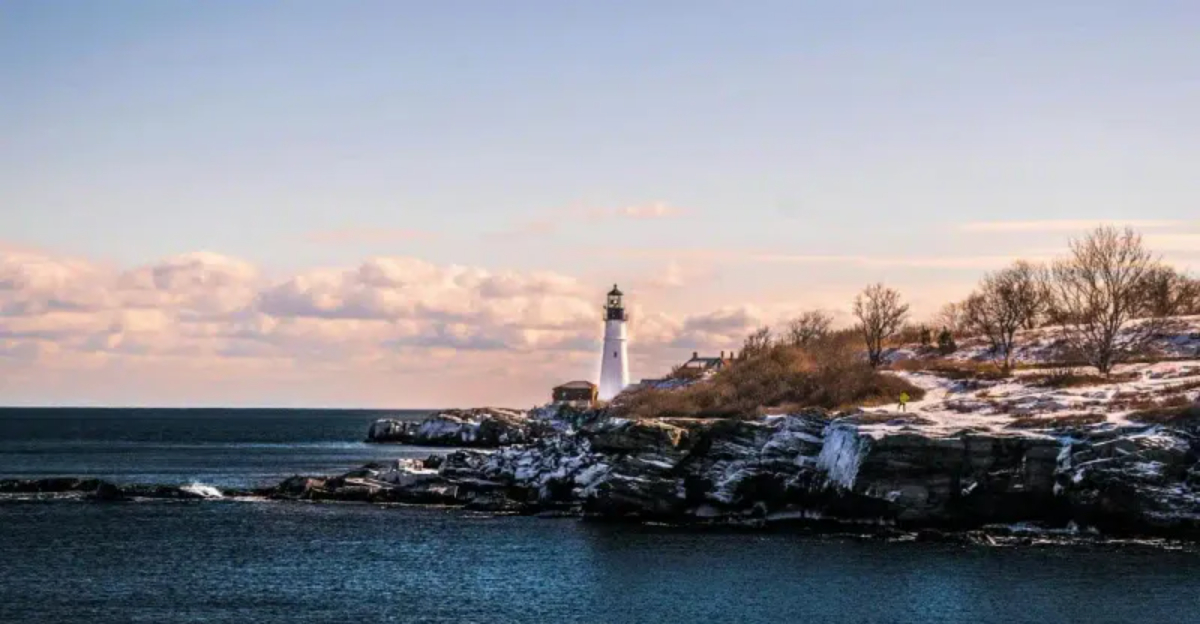
Tourism undoubtedly brings economic benefits to Maine’s charming coastal towns, but it also comes with significant costs. As visitors flock to experience the state’s breathtaking shorelines and quaint villages, the delicate balance of natural ecosystems and cultural heritage faces mounting pressure.
From environmental degradation to rising housing costs, the influx of tourists is reshaping the very essence of these serene sanctuaries. In this article, explore eight compelling reasons why tourism is leaving a lasting impact on Maine’s coastal beauty, and what it means for the future of this beloved region.
1. Overdevelopment Of Waterfronts
Historic fishing villages have slowly morphed into bustling tourist hubs. Vacation homes and plush resorts now dominate the waterfronts.
This transformation chips away at the authentic character of these towns. The charm that once defined Maine’s coastal communities is fading beneath a facade of modernity.
Generations of history are overshadowed by the lure of profit, leaving the heart and soul of these places altered forever.
2. Skyrocketing Housing Prices
The allure of Maine’s coastline has driven property prices to astronomical heights. Locals find themselves priced out of their communities.
Luxury rentals and second homes replace affordable housing, disrupting traditional community structures.
The continuity of generational residents is broken, and with it, the cultural heritage that once thrived in these coastal towns begins to fade.
3. Short-Term Rentals Displacing Locals
Platforms like Airbnb have altered housing availability. Year-round homes convert into seasonal rentals, squeezing local residents.
Essential workers, vital to the community, struggle to secure housing near their jobs. This shift not only affects individuals but weakens the social fabric of towns.
Communities face a transient population, where the rhythm of daily life changes with the seasons.
4. Loss Of Local Businesses
Practical, year-round stores vanish as seasonal boutiques take over. Hardware stores and grocers give way to tourist-oriented shops.
Residents are left with fewer services and steeper prices, altering daily life. The essence of the local economy shifts from serving residents to catering to tourists.
This transformation doesn’t just change shopping habits; it reshapes the very identity of these communities.
5. Environmental Strain
Tourism brings increased foot traffic and vehicle emissions. Natural areas suffer from overuse, leading to erosion and habitat loss.
Wildlife struggles to adapt as their ecosystems are disrupted. Pollution further mars the beauty of Maine’s coastlines.
The environmental toll is tangible, with delicate ecosystems pushed to the brink by the constant influx of visitors.
6. Marine Debris And Pollution
The surge in visitors results in more trash on beaches and waters. Marine debris not only harms wildlife but also diminishes recreational appeal.
Coastal economies, reliant on pristine environments, face challenges as pollution rises. The increasing debris mars the natural beauty that draws tourists in the first place.
Efforts to maintain these environments become constant battles against the tide of waste.
7. Noise And Air Pollution
Tourist activities bring noise, from traffic to lively festivals. These elevated sound levels disrupt the tranquility of coastal areas.
Air quality declines with increased vehicle emissions, impacting both humans and wildlife. The peaceful atmosphere that defines Maine’s charm is compromised.
As noise and pollution rise, the serene allure of coastal life diminishes, affecting residents and visitors alike.
8. Climate Change Acceleration
Tourism-related travel contributes to carbon emissions. Cars, planes, and boats accelerate climate change effects on Maine’s coast.
Erosion and rising sea levels already threaten these shores, exacerbated by increased emissions.
The delicate balance of Maine’s coastal ecosystems is at risk, with tourism playing a significant role in this acceleration. The very environment that attracts visitors is under threat.
Dear Reader: This page may contain affiliate links which may earn a commission if you click through and make a purchase. Our independent journalism is not influenced by any advertiser or commercial initiative unless it is clearly marked as sponsored content. As travel products change, please be sure to reconfirm all details and stay up to date with current events to ensure a safe and successful trip.